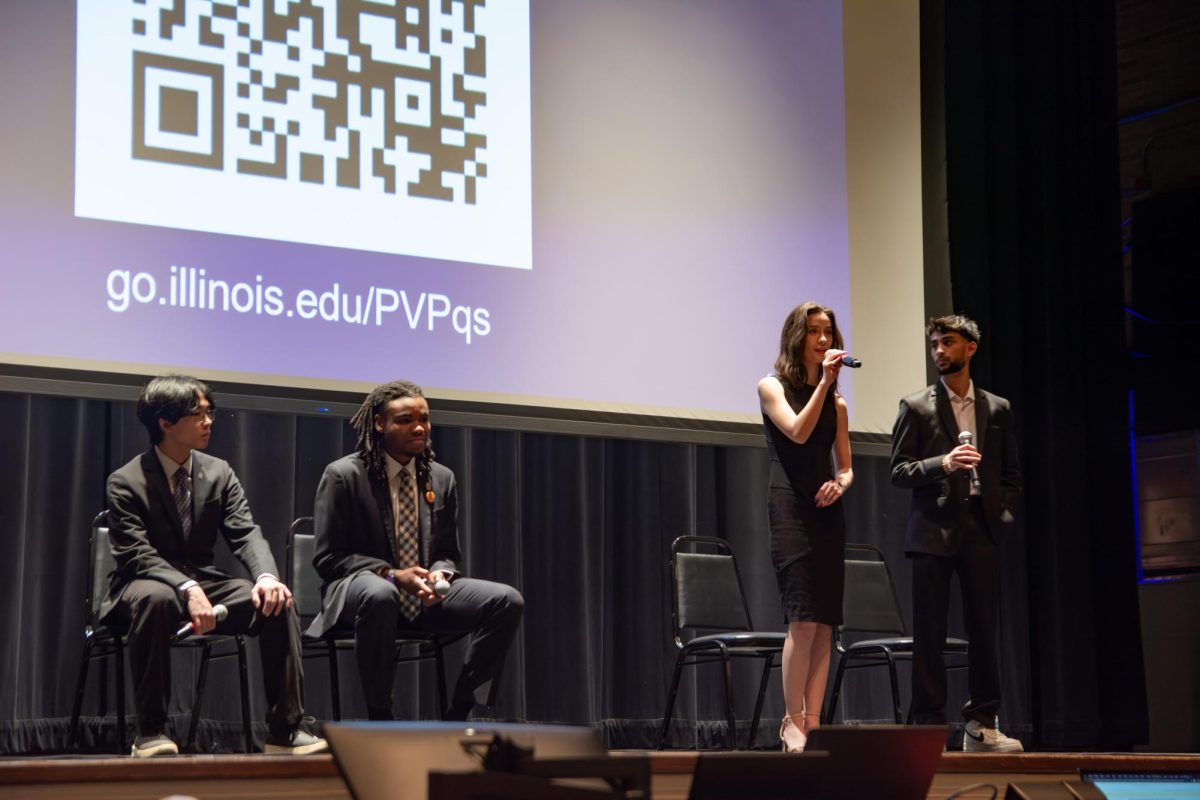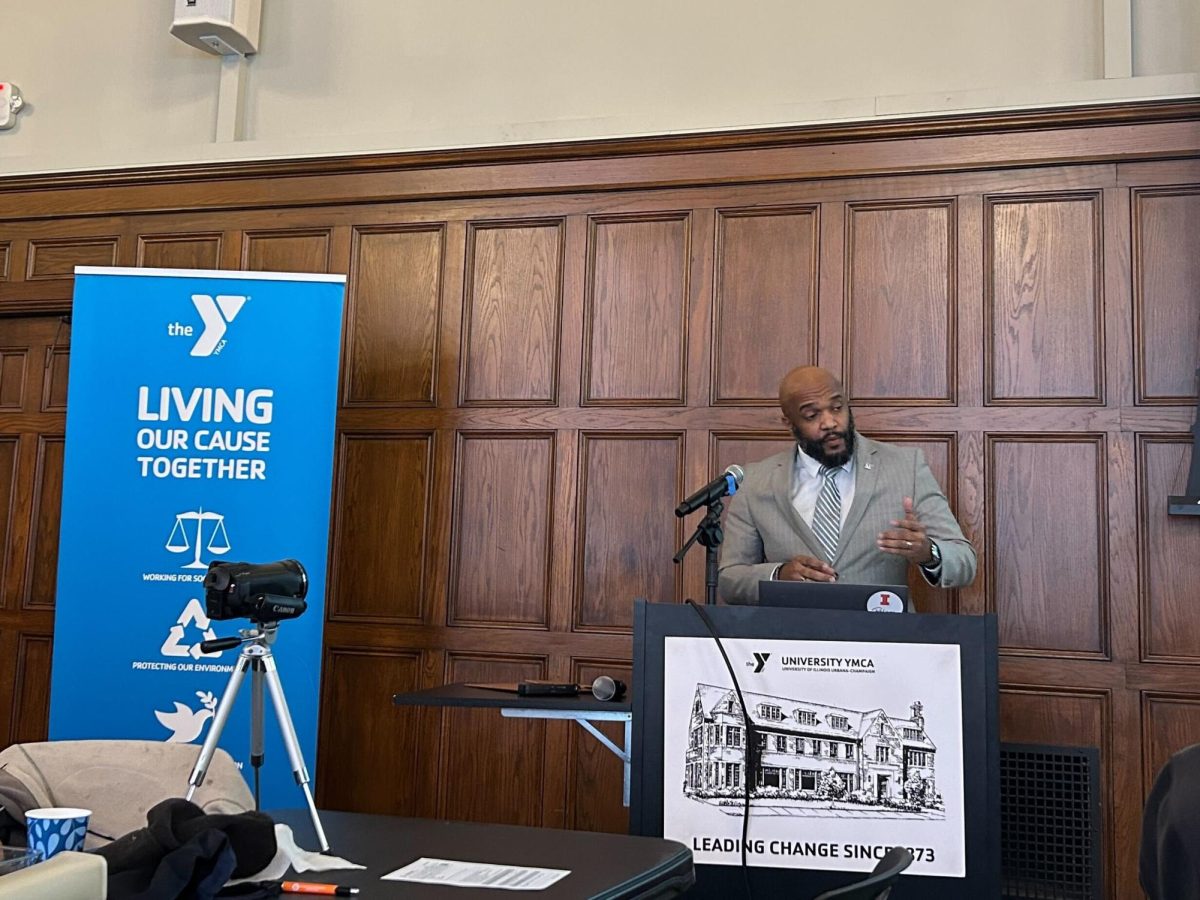Steven D. Schwinn, associate dean for Research and Faculty Development and professor in Law at the University of Illinois at Chicago, spoke at the University YMCA Friday afternoon on the Supreme Court’s role in shaping United States democracy and how it relates to the upcoming election.
The presentation was a part of the University YMCA’s Friday Forum + Conversation Café, a weekly forum that allows the public to discuss and learn about pressing issues.
Schwinn began the discussion by explaining topics he has been writing and talking about in the past months, specifically those related to the Supreme Court.
It included the Court’s most recent session and how their rulings affected the upcoming election. One of these cases was Trump v. Anderson, which unanimously decided that former President Donald Trump could not be removed from the ballot because states cannot determine eligibility for federal office.
“What the Supreme Court said is states cannot disqualify a candidate from the ballot under Section 3 of the 14th Amendment, which, to many of us who study constitutional law, is a little surprising,” Schwinn said.
Get The Daily Illini in your inbox!
As the presentation continued, viewers engaged in conversation with Schwinn. One viewer mentioned how they felt like campaigns were pushing against overseas and early voting.
“We’ve seen vote challenges in prior elections to some degree, but just nothing like this,” Schwinn said. “With regard to overseas military voting, it’s the Trump administration that brought legal claims recently to challenge overseas and military voting. But we’re also seeing challenges to other kinds of pre-election: day voting, absentee voting, early voting, by the Trump campaign.”
Schwinn also discussed ideological shifts, specifically how concerns were raised about the Court’s dependence on “history and tradition” in deciding individual rights cases measured by the standards and values of people from previous generations. This includes topics like gun control and abortion.
“History and tradition are going to set the scope and parameters, the needs of their individual rights,” Schwinn said. “And what the Court said, of course, in doubt, is whether there’s no right to an abortion because there wasn’t a right to an abortion in 1791 when we adopted the Bill of Rights, or in 1868 when we adopted the 14th Amendment, it just wasn’t there.”
Schwinn concluded his discussion by mentioning the importance of the upcoming election not only for presidential power but also in influencing the future structure of the Supreme Court because of the potential retirements in the next term.
“To give you a sense of what kind of dangerous territory we’re in, I like to tell people we were electing a president and lower offices next week, and of course, we are leading up there likely to be at least two retirements on the Supreme Court in the next president’s term or terms,” Schwinn said. “This is an election of the president, but it’s also electing the Supreme Court, and we have something to do about that.”






